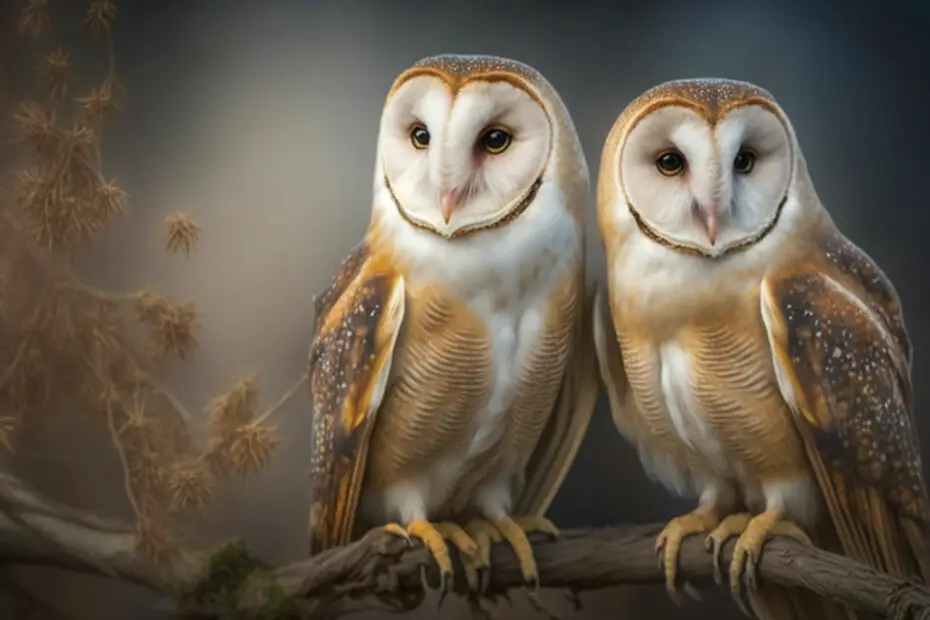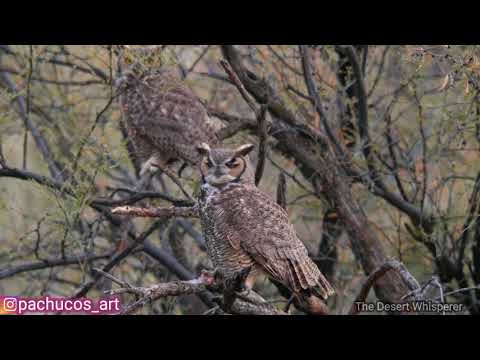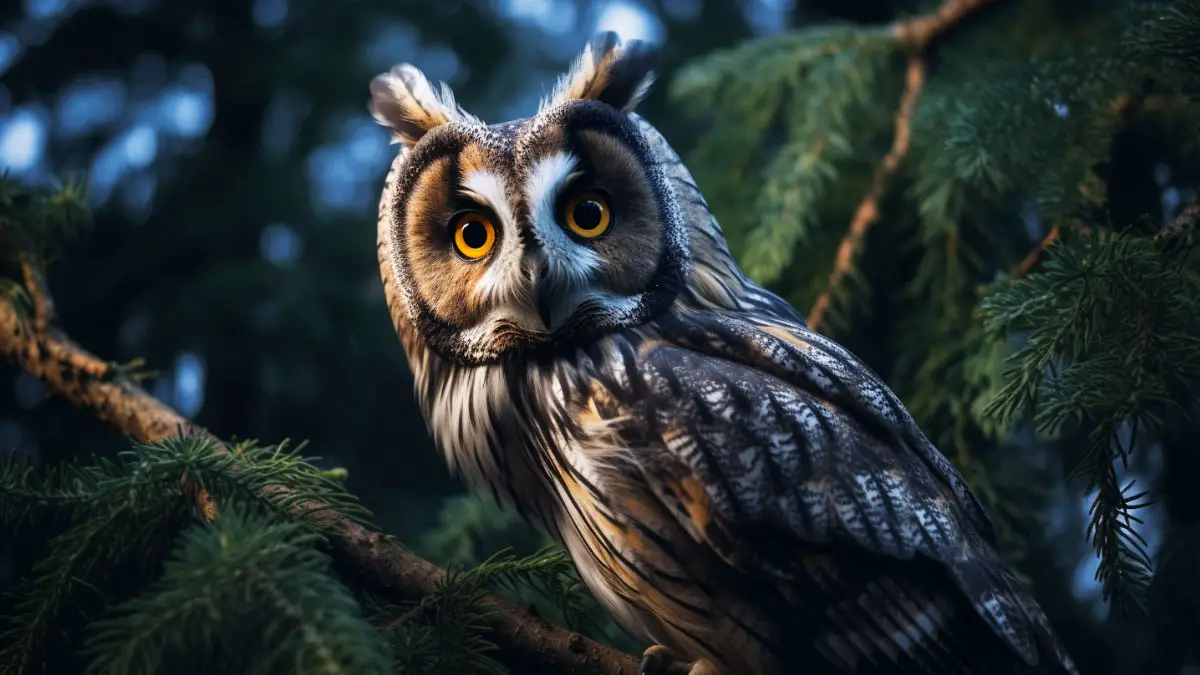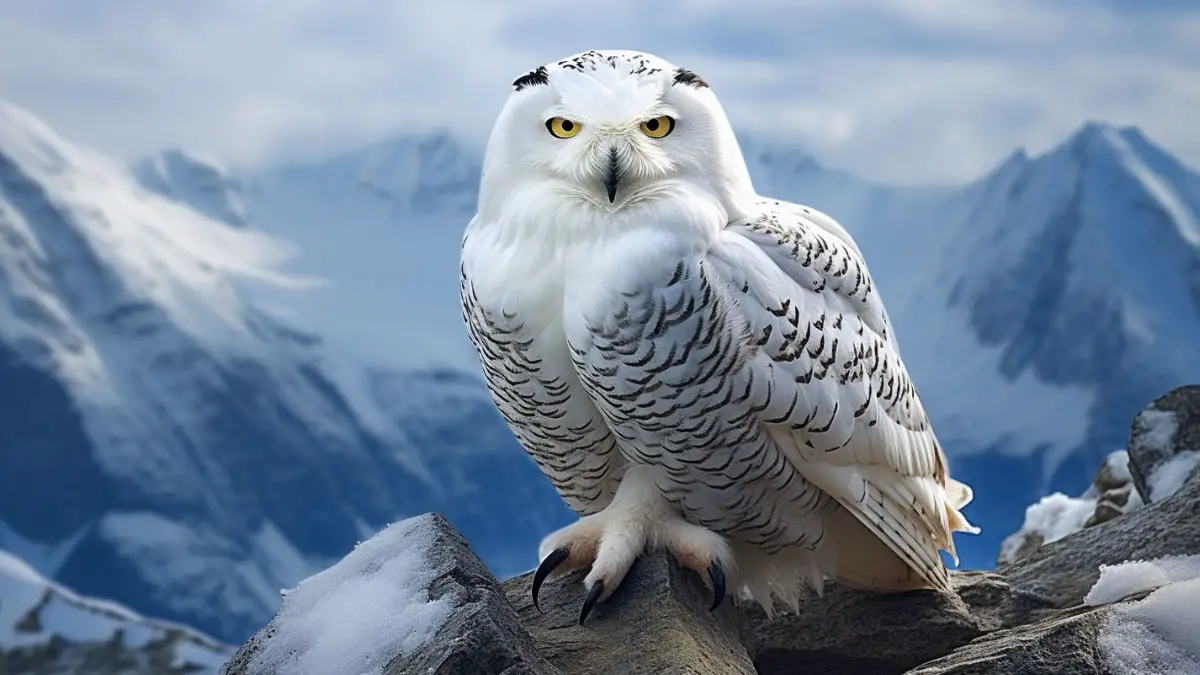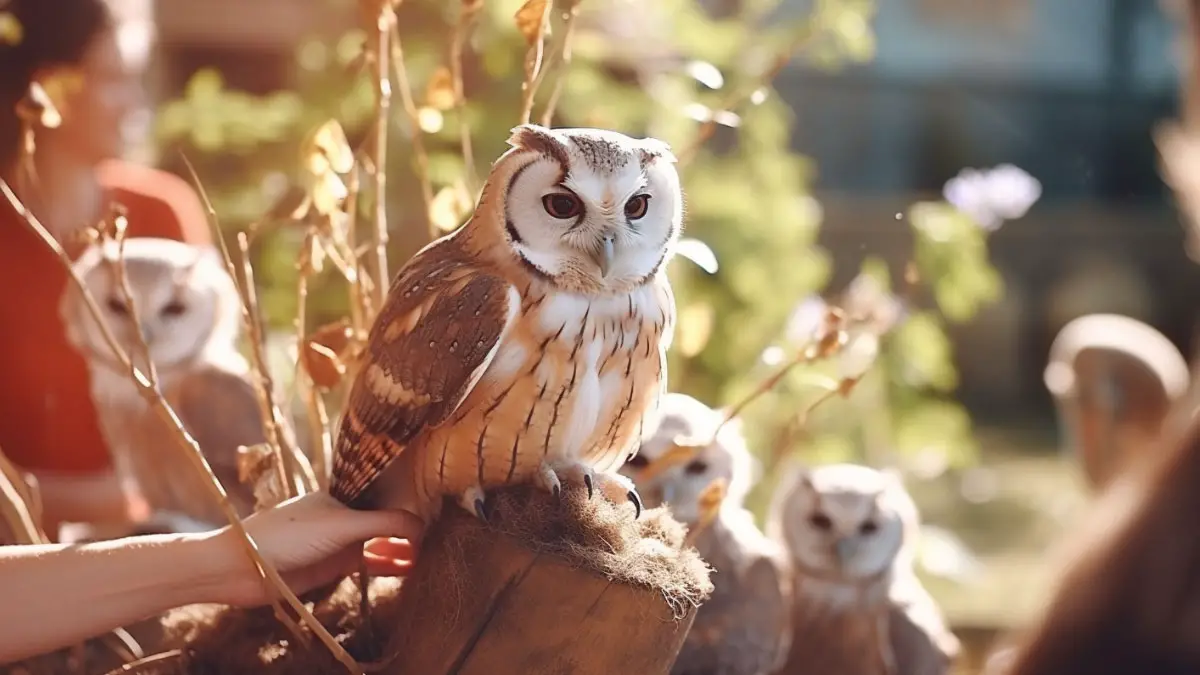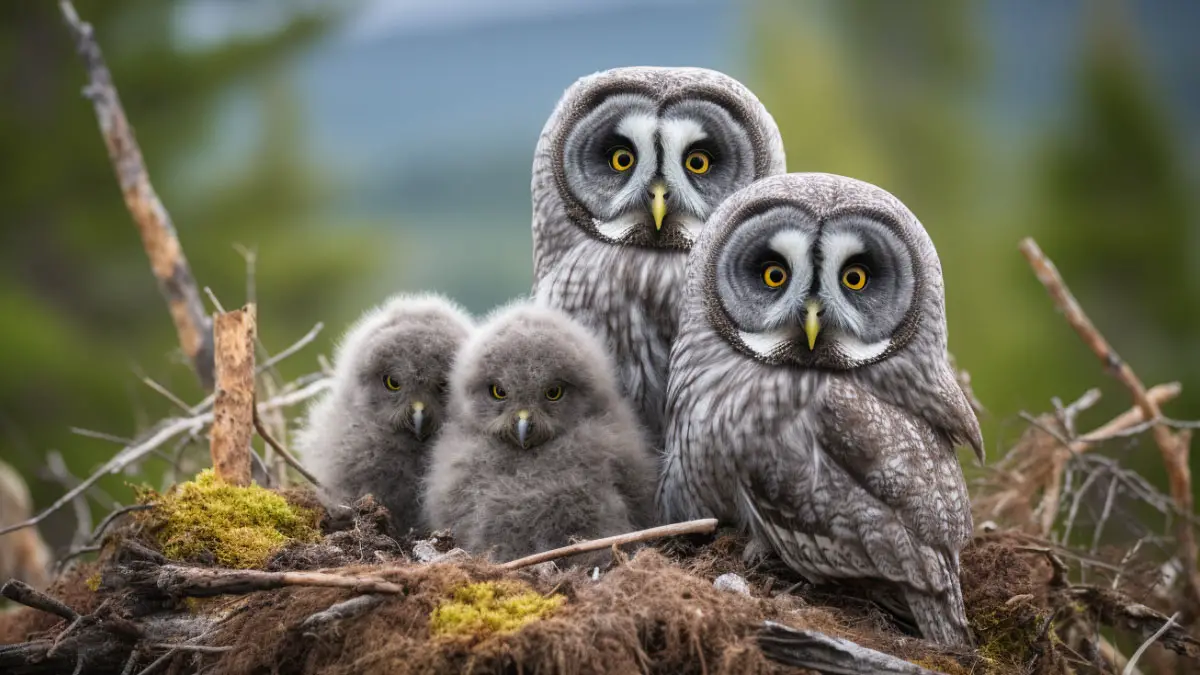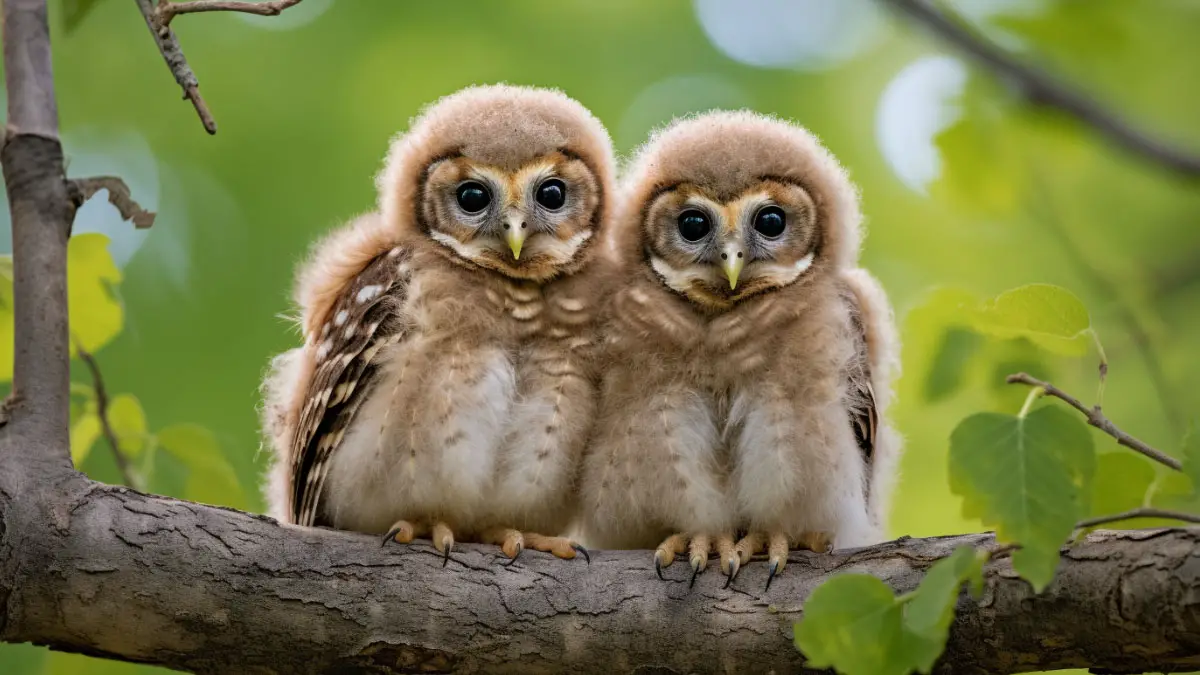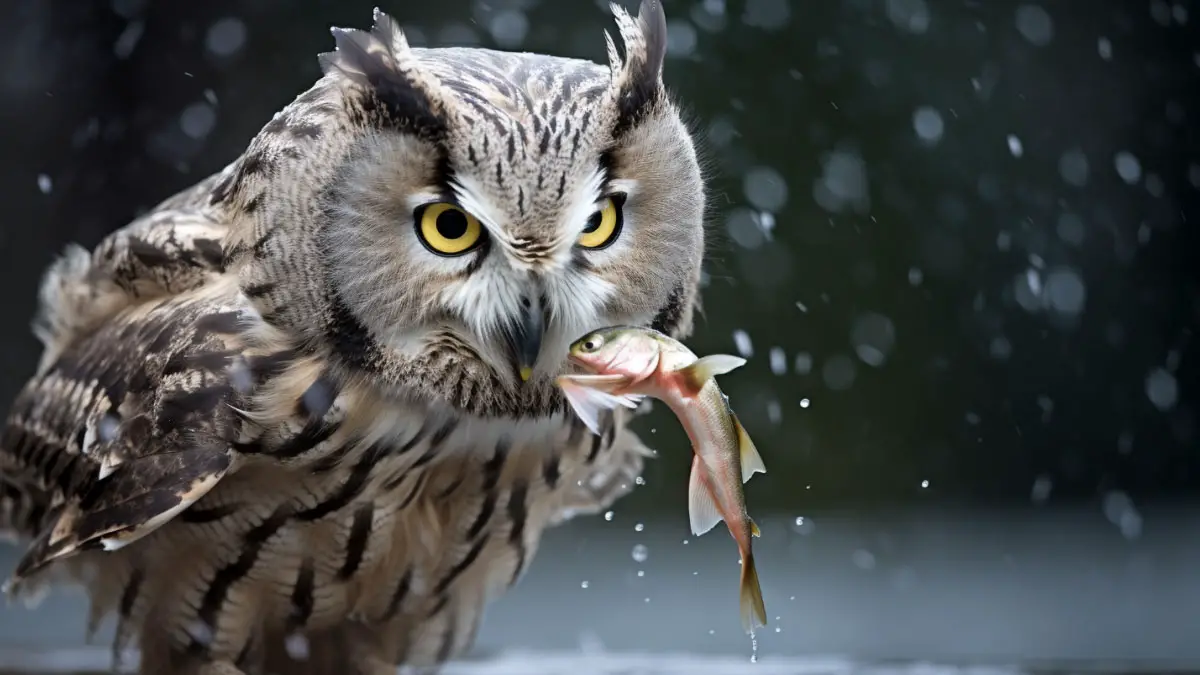According to research, 92 percent of all bird species are polygamous, only living together throughout the nesting cycle. The remaining eight percent spend years or a lifetime with a single mating partner.
But, do owls mate for life? Yes, after mating, most species of owls spend the rest of their life together. They build a nest where the female incubates the eggs and breeds all her future eggs. Among the reasons they stay together is to protect the nest for the next season.
With 254 recognized species of owls, they have different mating times and behaviors. Read on to learn about their monogamous nature and how they attract a mating partner.
Do Owls Stay Together After Mating?
Owls are known to be monogamous, and after mating, the couple stays together. While there are many reasons why they stay together, one of them is to protect their nest. Also, they’re very territorial and with their combined powers they have a better chance against intruders.
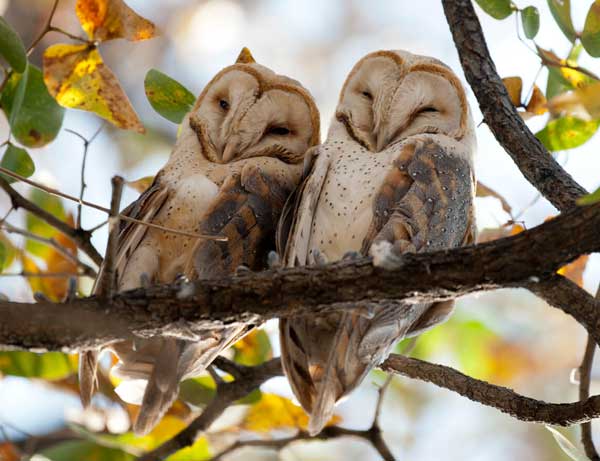
Some owl species can stay forever with one partner, while others change after a few years. Others like the Boreal owl use a mating system called serial monogamy, only bonding in a particular breeding season. While each system has its own merits, the monogamist species are more successful when breeding.
Which Owl Species Stay Together After Mating?
While there are many types of monogamous owls, only a few are well-researched. The following are some owl species that stay together after mating.
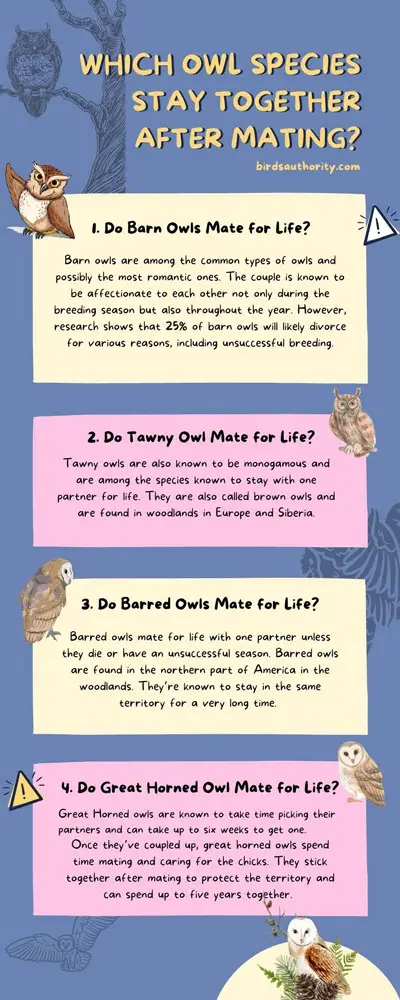
1. Do Barn Owls Mate for Life?
Barn owls are among the common types of owls and possibly the most romantic ones. The couple is known to be affectionate to each other not only during the breeding season but also throughout the year. However, research shows that 25% of barn owls will likely divorce for various reasons, including unsuccessful breeding.
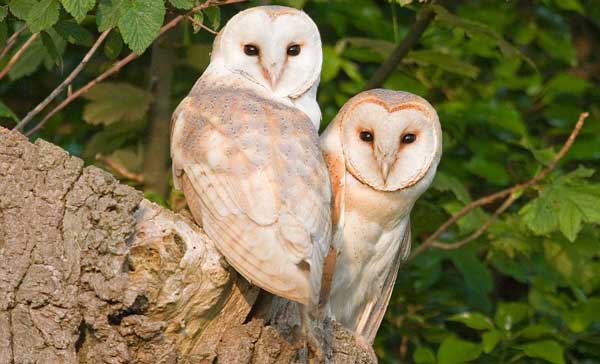
Nevertheless, they’re highly dedicated to each other and known to get very depressed if a partner dies. The bond makes them good partners in protecting the territory and bringing up the young ones.
2. Do Tawny Owl Mate for Life?
Tawny owls are also known to be monogamous and are among the species known to stay with one partner for life. They are also called brown owls and are found in woodlands in Europe and Siberia.
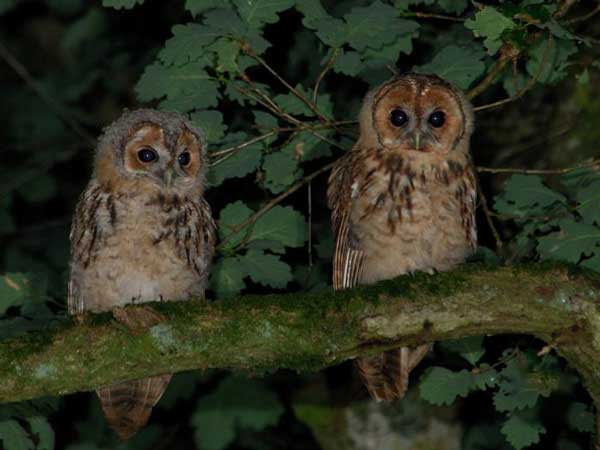
Like most species, the male Tawny owl provides for the female and can make up to 20 prey deliveries per day. The female incubates the eggs for a period between 28 and 29 days, and they raise the chicks together.
3. Do Barred Owls Mate for Life?
Barred owls mate for life with one partner unless they die or have an unsuccessful season. Barred owls are found in the northern part of America in the woodlands. They’re known to stay in the same territory for a very long time.
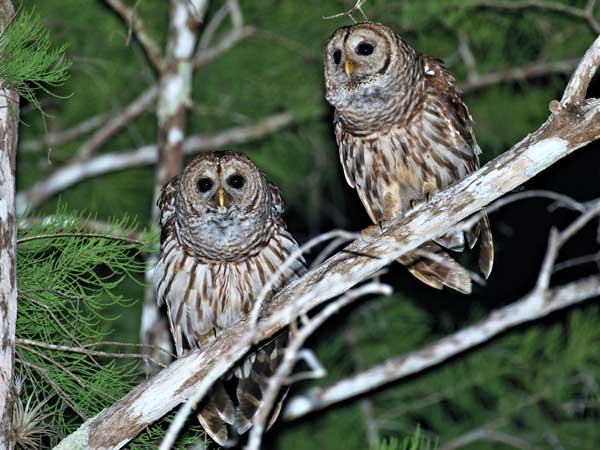
The males are very loving, and in one case, a barred owl male refused to eat until the female was full. They take care of their young ones together until they fledge after 28 days.
4. Do Great Horned Owl Mate for Life?
Great Horned owls are known to take time picking their partners and can take up to six weeks to get one.
Once they’ve coupled up, great horned owls spend time mating and caring for the chicks. They stick together after mating to protect the territory and can spend up to five years together.
Great Horned owls are found throughout the United States and some parts of Mexico.
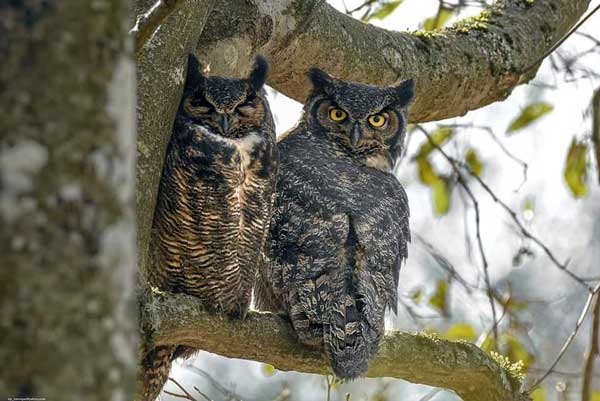
Other owl species known to stay together after mating include-
- Western Screech owls
- Eastern Screech owls
- Long-eared owls, etc
In the following video, the Great Horned owl is calling for a mate.
When Is the Owls Mating Season?
Owl’s mating season varies between species, with most breeding in spring when there is plenty of prey. However, some mate earlier in the winter, while some do late in the summer. Following are different species of owls and their preferred mating season.
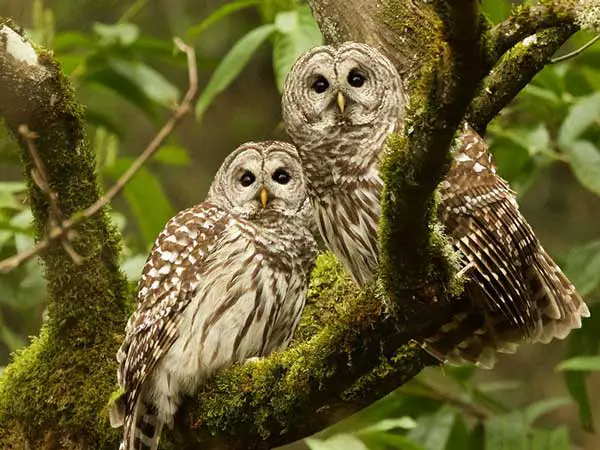
| Owl Species | Time |
| Barn owls | March-August |
| Barred owls | December -March |
| Tawny owls | March-May |
| Great Horned owls | December – March |
| Western screech owls | March-May |
| Easter screech owls | February-May |
| Long-eared owls | February-July |
Among the reasons owls prefer mating in spring is to avoid flying in the rain in search of prey. If you notice one flying in the rain, you might ask yourself, are owls active in the rain? But hawks don’t like it unless forced by circumstances. They prefer spring, where there is moderate sunshine and plenty of prey.
How Do Owls Attract a Mating Partner?
Like in most animals, the males engage in courtship rituals to attract a female partner. The males produce advertising calls as well as various hooting sounds. They also engage in various flying activities while chasing the female.
Owls also engage in head bobbing and swiveling when attracting a mate, a habit common in western screech owls. If the female approves a male, it will hoot back, and they begin to preen at each other.
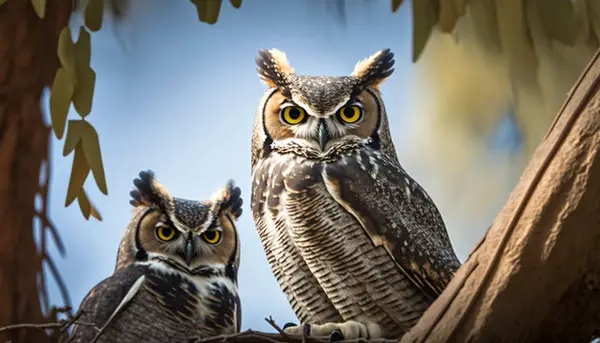
Some other owl species sing to claim their territory as they seek to allure a mate. Interestingly, the male owl sings incessantly until the day a mate shows up. An interested female owl may respond to the song with a higher and more clear pitch.
Also, other male owls allure their female counterparts by designing attractive nests. These owls also showcase the food they have in their nests as they keep calling to attract the females. A female owl may then respond by accepting the prey and visiting the nest. Thereafter, the calling stops and copulation and mating starts.
Why Do Owls Mate for life?
There are various reasons why owls prefer to stay with a single mating partner through the oncoming seasons. They include
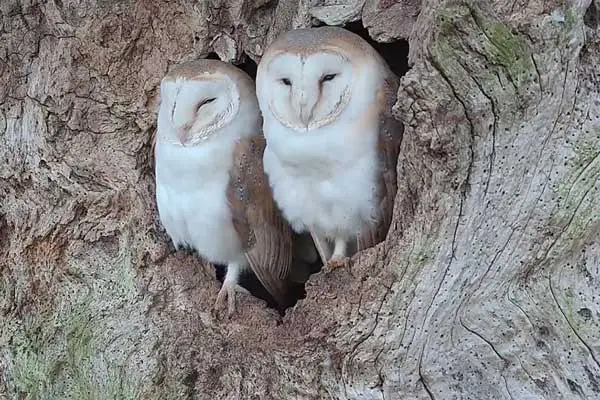
- The birds don’t have to find a mating partner every season, which consumes time and energy.
- The owls can protect their territory and nest better when together than alone.
- They don’t need to create new nests as migratory birds do, and it works better for them if they stay together.
- The owls who have successfully raised chicks together have better chances of bringing up more in the future.
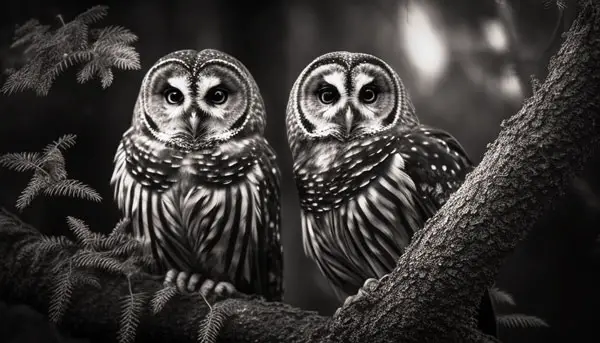
Related Questions
Following are some frequently asked questions related to this topic. Their answers are well-researched to answer some of the questions you might still have.
While most species of owls are monogamous, not all of them are. Some species, like the Boreal and Eurasian owls, are known to be polygamous.
You might spot an owl spreading its wings in the rain and wonder, do owls like to get wet? Owls sometimes spread their wings in the rain to relax and rinse their feathers. However, the behavior is not related to mating or attracting a mate.
If owls breed too early, they might be forced to hunt in winter when it’s rainy. The male who is responsible for feeding the incubating female will come out in mild rain to hunt.
Final Note
Despite most animals being polygamous, most owl species prefer finding a compatible mate for life. The likely reason is to protect their territory since owls are generally territorial, and finding a nesting place can be challenging. Also, a couple with a successful season is likely to get success in the future.
The male owls engage in various courtship rituals like flight shows and hooting to attract a female. After finding a partner, they mate in spring, with some, like the great horned, mating in winter. Despite making great couples, some get divorced, while some replace their partners after years. However, the male owls are known to play their duties well in providing and protecting the female.
